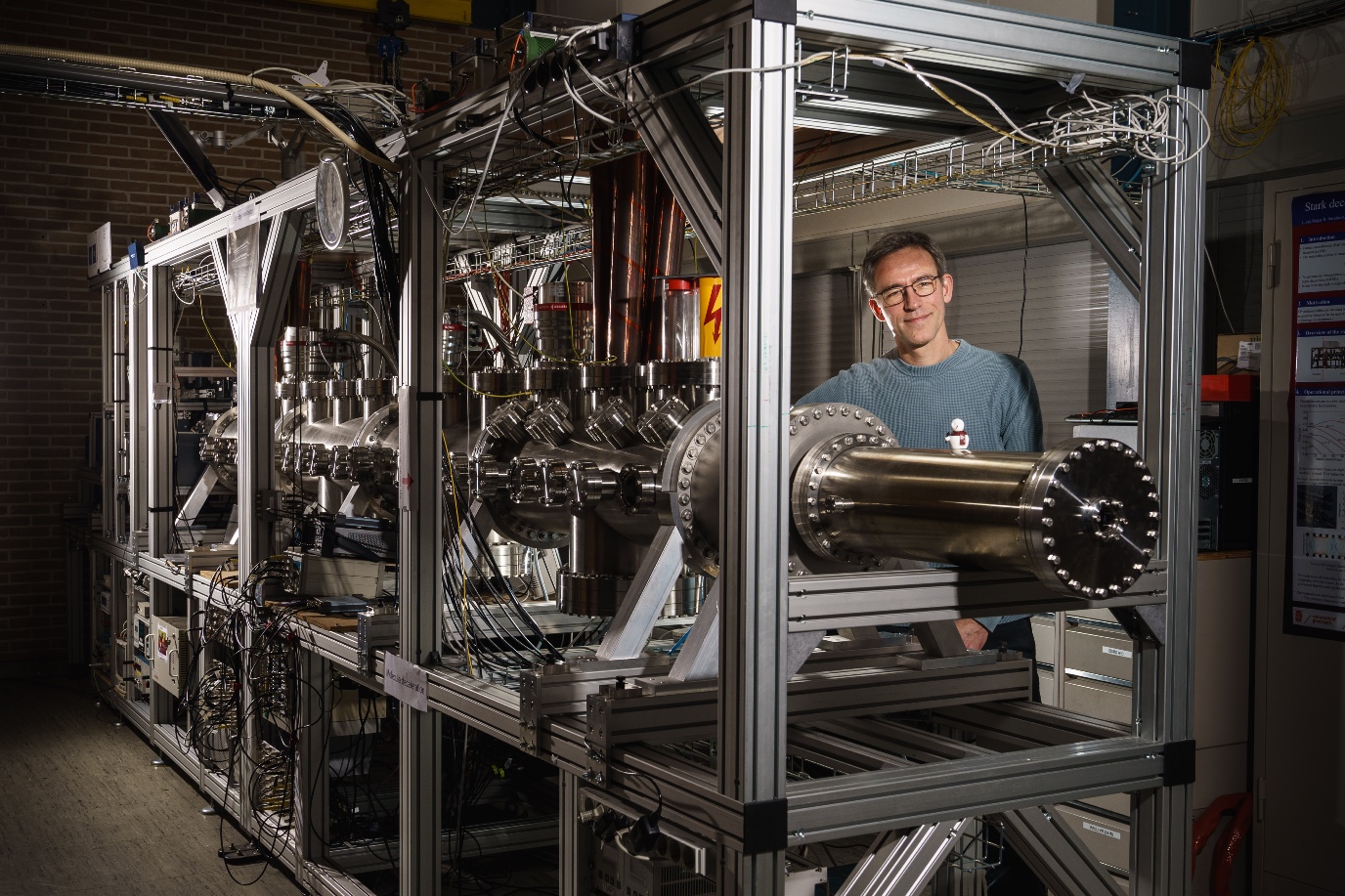Steven Hoekstra: Trapping Molecules
In his laboratory, physicist Steven Hoekstra is building an experimental set-up made of two parts: one that produces barium fluoride molecules, and a second part that traps the molecules and brings them to an almost complete standstill so they can be investigated. ‘In the large CERN accelerator, physicists study particles by making them smash into each other at high velocity. I want to slow the molecules down in order to make very accurate measurements', Hoekstra explains. He does that to test whether the Standard Model, a theory that describes the smallest particles, is correct.
One of the predictions of the Standard Model is that the negative charge of an electron is not the same on all sides of this particle, but this has never been confirmed by measurements. If Hoekstra and his colleagues succeed in this measurement, and if they can show that the result deviates from the prediction, it will strongly suggest that something is missing in the Standard Model. ‘It would be direct evidence that our current understanding of matter is incomplete.’
Hoekstra and his research group have been building their set-up over the last seven years, and it is now almost complete. The two parts have not yet been connected, but both work well independently. The team is constantly adjusting the set-up to attain maximum sensitivity. ‘Every measurement we make produces information for further improvements. It is fantastic to see how an idea is now, step by step, becoming reality.’ So far, several generations of undergraduates and PhD students have contributed to the design, construction, and fine-tuning.
Making such an instrument with your own hands is great, says Hoekstra. ‘You have to solve all problems yourself; if a problem arises, you can’t just call customer service.’ He visits the lab almost daily, but these days he seldom wields a screwdriver himself. ‘I am now building a team of PhD students and undergraduate students, who all make their own contributions to the project. This is real teamwork, and it is great to see it all coming together.’
Text: FSE Science Newsroom | René Fransen
Photos: Reyer Boxem

More news
-
15 September 2025
Successful visit to the UG by Rector of Institut Teknologi Bandung
